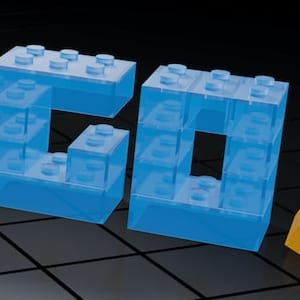throw one’s toys out of the pram: Idiom Meaning and Origin
What does ‘throw one's toys out of the pram’ mean?
The idiom "throw one's toys out of the pram" means to react in an excessively angry or childish manner, often in response to a minor inconvenience or disappointment.

Idiom Explorer
The idiom "toys in the attic" refers to someone who is eccentric or mentally unstable.
The idiom "throw the baby out with the bathwater" means to discard something valuable or useful along with things that are not. It warns against the risk of making hasty or indiscriminate decisions that result in unnecessary loss.
The idiom "throw stones" means to criticize or blame someone, often without considering one's own faults or mistakes
The idiom "throw out" means to dispose of something, to get rid of it. It can also mean to eject or expel someone from a place or a group.
The idiom "throw one's hat over the wall" means to commit oneself to a course of action, often into a difficult or challenging situation, in order to show determination and resolve.
The idiom "throw off" means to remove or get rid of something or someone, often in a sudden or forceful manner. It can also refer to causing someone to lose their balance or stability.
The idiom "throw money away" means to spend money on something that is essentially wasteful or unnecessary, resulting in a loss of money or resources.
This phrase suggests a careless or frivolous attitude towards money, implying that the person is not concerned about the value or usefulness of what they are spending their money on.
The idiom "throw a wobbly" means to have a sudden outburst of anger or lose control of one's emotions, typically in a dramatic or exaggerated way.
The idiom "throw away" means to get rid of or discard something without considering its value or potential usefulness.
The idiom "throw a tantrum" means to have an outburst of anger, often in an exaggerated or dramatic manner.
Unexpected Toddler Tantrums
The idiom "throw one's toys out of the pram" is a commonly used phrase in British English, often used to describe someone's overreaction or tantrum in response to a particular situation. It is similar to the idioms "throw a tantrum," "have a tantrum," and "throw a fit." The idiom is derived from the image of a child throwing their toys out of a pram or stroller in a fit of anger or frustration. While this idiom is primarily used in British English, it has gained some recognition and usage in other English-speaking countries as well.
The literal meaning of "throw one's toys out of the pram" is quite straightforward. It refers to a child's act of throwing their toys out of a pram in a fit of anger or displeasure. However, the figurative meaning of the idiom extends beyond this literal interpretation. It is used to describe a person's exaggerated or irrational response to a situation, similar to a child's tantrum. This overreaction is often seen as childish or immature, implying that the person is unable to handle or accept a disappointing or unfavorable outcome.
The origin of the idiom can be traced back to the early 20th century, although its exact origins are unclear. It is speculated that the idiom may have originated from the British nursery rhyme "Little Miss Muffet," which featured a character named "Tommy Stout" who throws his cocked hat over the moon. Over time, this phrase evolved into "throwing one's toys out of the pram," replacing the original reference to the hat with toys and the moon with a pram.
The idiom gained popularity in the United Kingdom, where it became a widely used expression to describe an adult's overreaction or display of anger in response to a perceived injustice. It is often used in informal conversations, written texts, and media portrayals as a way to convey a sense of immaturity or an inability to handle adversity.
Similarly, the idioms "throw a tantrum," "have a tantrum," and "throw a fit" are also used to describe an exaggerated or irritable reaction to a situation. These idioms convey a similar meaning to "throw one's toys out of the pram." While each idiom has its own unique nuances and cultural connotations, they all highlight an individual's inability to control their emotions or accept an unfavorable outcome in a calm and mature manner.
Despite its popularity in British English, the idiom is not as widely recognized or used in American English. American English has its own idiomatic expressions to describe similar behavior, such as "spit the dummy" or "throw a fit." While these expressions share a similar meaning to "throw one's toys out of the pram," they are not interchangeable and have distinct cultural connotations.
It is interesting to note the differences in idiomatic expressions across different cultures and languages. While "throw one's toys out of the pram" is a well-known and commonly used phrase in British English, it may hold little to no meaning in other English-speaking countries. This serves as a reminder of the richness and diversity of idiomatic expressions and the importance of understanding cultural context when communicating in different languages.
The idiom "throw one's toys out of the pram" is a British English expression used to describe an exaggerated and irrational reaction to a situation, likening it to a child throwing their toys out of a pram in a fit of anger. It can be used interchangeably with the idioms "throw a tantrum," "have a tantrum," and "throw a fit," which convey a similar meaning. While its exact origin remains uncertain, the idiom has become a well-known and commonly used phrase in British English, highlighting immaturity or an inability to handle disappointment. While less recognized in American English, it serves as a reminder of the richness and diversity of idiomatic expressions across different cultures.
Example usage
Examples of how the idiom *throw one's toys out of the pram* can be used in a sentence:
- He threw his toys out of the pram when he realized he didn't get the promotion he wanted.
- She always throws her toys out of the pram whenever someone disagrees with her.
- The coach threw his toys out of the pram after the team lost the game.
More "Idioms" idioms



